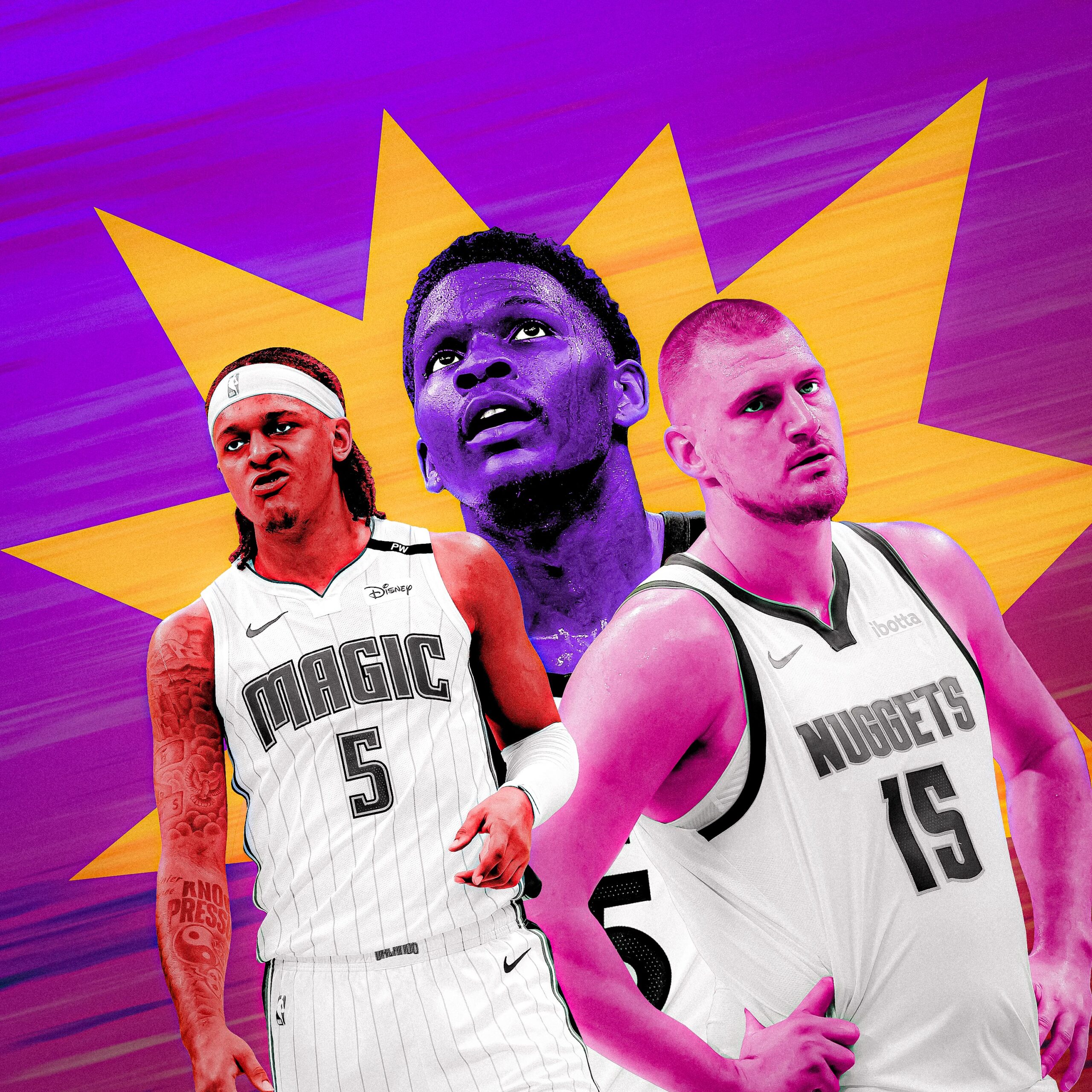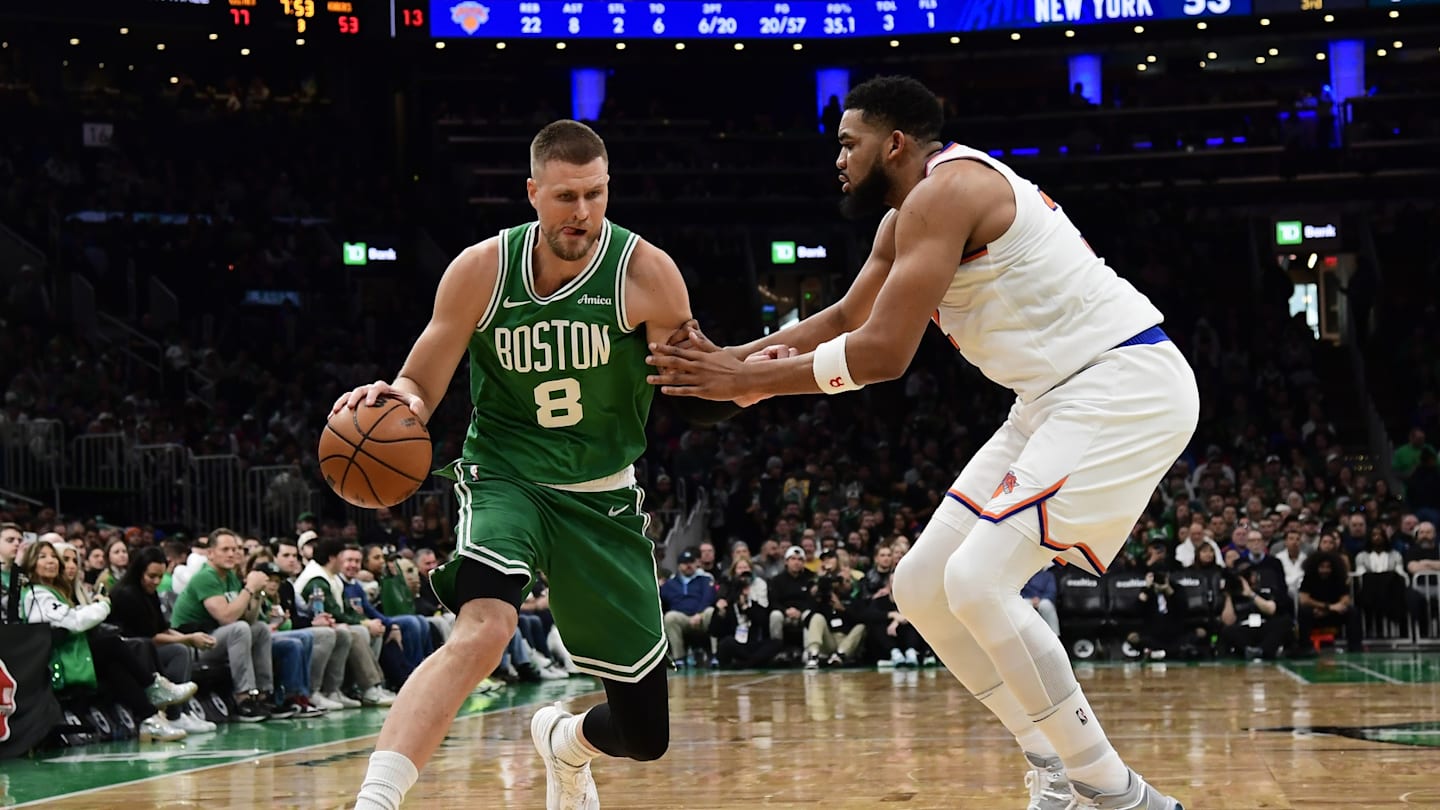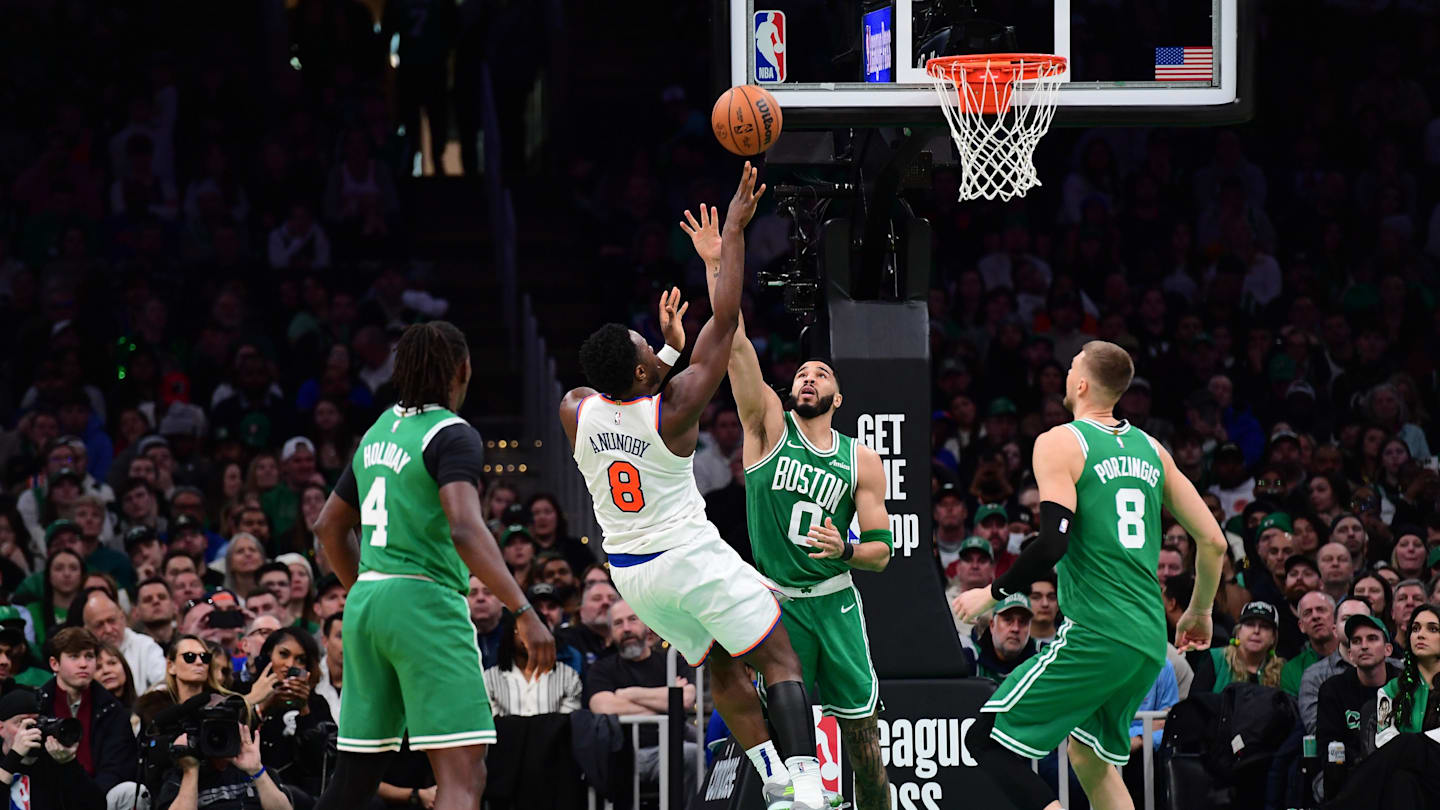Five NBA Teams Who Did Nothing at the Trade Deadline—and What It Means

After a transformative week during which a league-record 63 players were dealt before the NBA trade deadline, only five teams did not, in any form, make a move: the Portland Trail Blazers, Orlando Magic, Brooklyn Nets, Denver Nuggets, and Minnesota Timberwolves.
A few more teams barely did anything—the Boston Celtics, Oklahoma City Thunder, and Indiana Pacers, for example, nickeled-and-dimed their way through relatively insignificant transactions—but no others sat completely still, both on the day of the trade deadline and during the entire month leading up to it. There are similarities among these five organizations, but no unifying theme to connect their passivity. No overarching statement to be gleaned and then spun into a meaningful trend. A couple of them are all-in contenders, one is ascending through unfortunate growing pains, and the other two are near the start of a rebuild. Their inertia is important, though.
Here’s a critical look at each stagnant situation and whether everything these teams didn’t do should be recognized as prudent or unimaginative. (At the end of each section, a one-word verdict will be applied.)
Portland Trail Blazers
The Trail Blazers have somehow won 10 of their past 12 games and deserve a standing ovation for the restraint they showed on Thursday, not taking all their assets and pushing them front and center for a chance to win the 2025 NBA title. (That was a joke. Sort of.)
Portland is 23-31, a spunky 13-seed that’s only 4.5 games back of the play-in. It’s also spinning its wheels, trudging through an increasingly paradoxical rebuild that can now, fairly, be categorized as bizarre. In the short term, Portland’s roster is tantalizing, explosive, and somewhat nonsensical. Its core players, several of whom are extension eligible this summer, may not be compatible with one another, and none are clear foundational centerpieces.
The Trail Blazers clearly aren’t going full bore on a youth movement, Jerami Grant, Deandre Ayton, and Robert Williams III are all (when healthy) in Chauncey Billups’s rotation. While veteran leadership can certainly bring value to a green team, there’s also something to be said about developing young players by, like, putting them on the court at the same time. Lineups that feature Shaedon Sharpe, Scoot Henderson, and Donovan Clingan—the team’s three most recent lottery picks—have played only 145 minutes this season, and they haven’t started a game together since
The Blazers have made it unnecessarily hard to figure out who should be part of the organization’s next growth cycle, a perplexing dilemma when you realize that all but four players on this roster are under contract next season, too. Yes, Portland will likely have another lottery pick in what’s expected to be a deep draft. But the strategy, right now, all feels a bit too
Winning is intoxicating. But would it have made sense to be a little more aggressive about moving off Williams and Grant or potentially even selling high on Anfernee Simons? (Assuming that the market for any of those three could yield positive draft capital in a league full of teams so desperate to win.) There are a lot of and I don’t have all the answers. But I really hope that the Blazers weren’t hoodwinked by their own recent success. That would be criminally shortsighted, regardless of how formidable they’ve looked over the past six weeks. Since January 1, the Thunder and Clippers are the only teams that rank higher in defensive rating, which might be the most unbelievable stat I’ve read all season.
Adding to the frustration: Reports have trickled out that Portland wasn’t particularly close to completing any deals. “We know a lot of fans, and probably a lot of people in here, prefer a little bit of action,” Blazers general manager Joe Cronin said. “Often, we do too. We’re always looking for ways to participate in these windows and find guys who can help us be better. But this time around, we just didn’t find the value. So, we decided to pass.”
The trade deadline can be an inflection point for any franchise mired in the wilderness of a prolonged rebuild. By sitting this one out, Portland tacked another level of uncertainty on top of a plan that’s yet to take shape.
One-word verdict: Bizarre
Orlando Magic
After this team did nothing at the trade deadline for the second straight season—even though it’s stuck in ninth place, has gotten three wins since January 13, and has 2025’s most decrepit offense—some could say that the Magic were too vigilant for their own good. But where some organizations are overly self-conscious, Orlando is perfectly self-aware. I agree with Magic president of basketball operations Jeff Weltman’s sincere commitment to continuity and the intrinsic benefits it can generate. Despite its recent struggles, I trust Orlando’s developmental plan and think that the talent it’s blended together is ready, today, to make serious noise in the playoffs.
The Magic know how good they can be with what they already have. In the face of serious injuries to Paolo Banchero, Franz Wagner, Jalen Suggs, and a few other key pieces, they chose to remain calm.
“Honestly, right now we’re kind of at the low point of the season with the way that we’re playing, and when that happens, when that coincides with the trade deadline, teams are going to squeeze you,” Weltman said. “A lot of teams angled towards some of our long-term assets in return for short-term solutions to the team. In other words, moves we regarded as kind of ‘panic’ moves. And we don’t regard ourselves as having to panic right now. We think we’re a very good team.”
The Magic also know that the bill for what’s already built is due soon. Right now, they have the second-lowest payroll in the NBA. They are projected to have the fifth highest next season. That amount includes team options for Moe Wagner, Gary Harris, Cory Joseph, and Caleb Houstan that, if declined, would drop the Magic below the tax. Regardless, Banchero’s inevitable max extension will come on the books in 2027 and will push Orlando well into the tax. They could’ve given themselves a head start on Thursday, mitigating that monetary pain by moving off some long-term salaries, but that would have been counterintuitive and defeated the entire point of their build toward a sustainable contender.
Orlando has 20 picks (eight first-rounders, 12 second-rounders) in the next seven drafts. Its two All-NBA-caliber cornerstones are 22 and 23 years old. When the time comes to leap forward, they want to be prepared. By doing nothing at this trade deadline, they will be. “We will come to a point where we are going to assess the team and see what it is that we need to advance to the next phase and really turn the corner,” Weltman said. “I look forward to doing that. … We’re going to be aggressive.”
Not every franchise can afford to take the long view. Magic fans should be thrilled that their favorite team finally is.
One-word verdict: Commendable
Brooklyn Nets
Before all hell broke loose, the belle of this trade deadline’s ball was expected to be Cam Johnson. He’s a highly efficient 6-foot-8 movement shooter in his prime, he has a plug-and-play skill set, he’s owed $43 million over the next two seasons, and he’s even played well enough this year to garner a few Most Improved Player votes. Sounds pretty attractive!
Every good team could use someone exactly like this. Johnson doesn’t need the ball to have a positive impact on everyone around him. He’s played well in the NBA Finals and has, by all accounts, an admirable understanding of his strengths and weaknesses on the basketball court. But instead of moving him or anyone else on their roster, the 19-34 Brooklyn Nets stood pat. (They did agree to buy out Ben Simmons, but not until after the trade deadline passed. They also traded Dennis Schröder and Dorian Finney-Smith in December.)
It would’ve been interesting to see the Nets get in on the package that Atlanta eventually received from Cleveland for De’Andre Hunter (Caris LeVert, Georges Niang, three second-round picks, and two pick swaps). Maybe the Cavaliers prioritized Hunter’s defense, but Johnson would have been a more seamless fit in Kenny Atkinson’s offensive system. That exact trade also would’ve allowed Brooklyn to carve out another $12 million in cap space, which it will already have an exorbitant amount of this offseason.
But that much flexibility, plus Johnson, Nic Claxton, the discreetly promising Noah Clowney, and the four (yes, four!) first-round picks they have in this June’s draft, means that the Nets are worth monitoring for the foreseeable future. The possibilities are endless. They can either keep everyone already under contract and add more pieces via free agency or field even better offers for Johnson this summer, after the playoffs discombobulate the well-laid plans currently held by rival organizations. Staggering change may be on the horizon.
I’m not saying this will or won’t happen, but if the Bucks lose in the first round, it’s easy to see Giannis Antetokounmpo demanding a trade and thinking that Brooklyn is a decent fit. If the Suns don’t make the postseason or once again fall flat in the first round, Devin Booker will be on the tip of every rumormonger’s tongue. If the Celtics come up way shorter than they internally expect, could Jaylen Brown become available? What about Zion Williamson? Trae Young? Ja Morant? Brooklyn may not be first in line, but it can hop into any of these discussions if and when it gets antsy enough to do so.
One-word verdict: Incomplete
Denver Nuggets
The Nuggets and Timberwolves are basically in the same boat. Both have wildly expensive rosters, limited movable assets, and something close to championship-or-bust expectations.
Heading into Thursday’s deadline, the Nuggets had a 2031 first-round pick and one swap to deal and were navigating the league’s eighth-highest tax bill. Since Denver’s over the first apron, its ability to make any meaningful upgrade was dubious; its appetite to dangle someone like Michael Porter Jr. was understandably low. “I think the best way to describe it is we either had to go big or do nothing,” Nuggets general manager Calvin Booth said. “A big move in my mind is like adding a significant depth piece.”
If they were interested in adding to what they already have—a backup center wouldn’t have hurt—the Nuggets could’ve dumped enough salary to get under the first apron and had no restrictions on the buyout market. (As Denver is over the first apron, it can’t sign any waived player whose contract was above the non-taxpayer exception.) But losing a 2031 first-round pick just to dump Zeke Nnaji for an outside shot at signing someone (who may or may not crack your playoff rotation) would not have been smart. Booth’s hands were tied, and it’s reasonable to believe that the Nuggets can win another title with the roster they have.
One-word verdict: Understandable
Minnesota Timberwolves
Meanwhile, in Minneapolis, the Timberwolves had one top-13 protected 2025 pick (via the Pistons), three swaps, and four second-round picks to trade. They reportedly tried to pair Kevin Durant with Anthony Edwards but were stymied by life in the second apron. “There was never this great momentum within the organization to shake it up or do anything,” Timberwolves head coach Chris Finch said. “Since basically Christmastime, middle of December, I think we feel like we can point to the team that we can still become, and we’ve seen glimpses of that.”
The Timberwolves opted not to let their finances force another on-court step backward. They currently have the second-highest tax bill in the league ($91 million!), and next season’s payroll must be reduced if they want to duck under the second apron. Julius Randle has a $30.9 million player option for 2025-26. His backup, Naz Reid, has a $15 million player option, and Nickeil Alexander-Walker is an unrestricted free agent. Extending Reid seems like the most important order of business, but Randle’s market value is a total mystery, to the point where it’s unclear whether he’ll opt out and test free agency. Clarifying the situation by trading him before last week’s deadline was never realistic.
In the end, Minnesota and Denver were two teams that really felt how sharp the new CBA’s edges can be. No cavalry is coming. Now, Finch and Michael Malone will be forced to continue tinkering with their rotations, through injuries, developmental revelations, and the never-ending search for solid ground. Who fits together? What works? Those questions will continue into the postseason and, potentially, beyond.
One-word verdict: Unfortunate
Michael Pina
Michael Pina is a senior staff writer at The Ringer who covers the NBA.Related
NBA: Mark Cuban says he would have asked for more…
Feb 13, 2025; Dallas, Texas, USA; Mark Cuban laughs during the second half of the game between the Dallas Mavericks and Miami Heat at American Airlines
NBA Scout Reveals Why Celtics Can Easily Beats Knicks in…
The Boston Celtics are one of the teams who are expected to be a contender at the end of the season. They are the defending NBA champions, so they feel like the
Nikola Jokić gives peak Nikola Jokić interview with Scott Van…
Nikola Jokić is still rewriting the record books — and treating it like just another day at the office. In a 149-141 overtime win over the Phoenix Suns
Knicks’ Struggles vs. NBA’s Elite Explained
The New York Knicks are one of the best teams in the NBA, but as of late, they have been defined more by their struggles than their triumphs.The Knicks are 0-7













